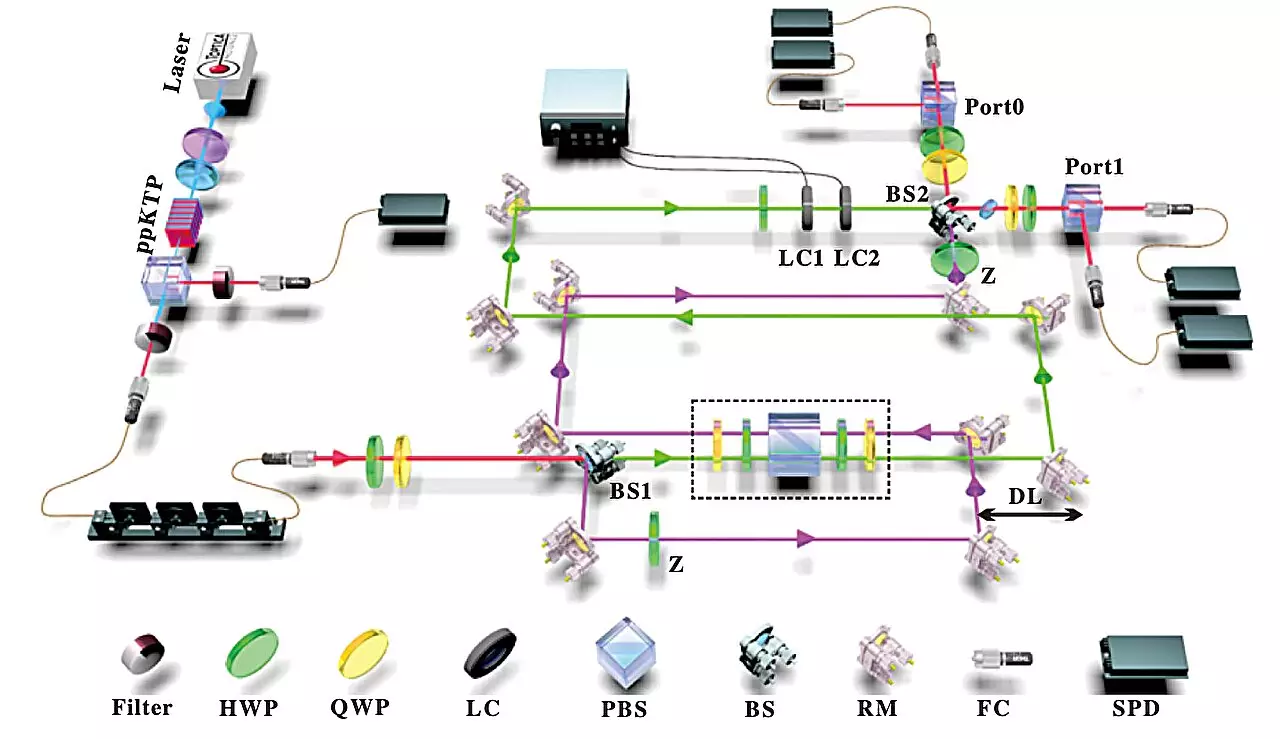The concept of time as a unidirectional flow from past to future is deeply ingrained in human understanding. However, the laws of physics at the quantum level do not inherently favor one direction of time over another. Both classical and quantum mechanics operate under reversible equations of motion, where changing the time coordinate system does not invalidate the evolution process. This fundamental principle is known as time reversal symmetry.
While the idea of time reversal has captivated researchers in quantum information science for its potential applications, realizing it experimentally has proven to be a daunting task. Academician Guo Guangcan, along with Prof. Li Chuanfeng, Prof. Liu Biheng from the University of Science and Technology of China (USTC), and Prof. Giulio Chiribella from the University of Hong Kong, sought to address this challenge by constructing a unique quantum evolution process in a photonic system.
By manipulating the input-output inversion of a quantum device, the research team was able to create an evolution process that exhibited time-reversal properties. This innovative approach resulted in a time-reversal simulator for quantum evolution, allowing for the coherent superposition of quantum evolution and its inverse.
Through the quantization of the evolution time direction and the use of quantum witness techniques, the team was able to characterize the structures and benefits of input-output indefiniteness in quantum evolution. This approach proved to be highly advantageous in quantum channel identification, surpassing the success rates achieved by strategies based on a definite time direction.
The study conducted by the research team not only sheds light on the potential of input-output indefiniteness as a valuable resource in quantum information science but also highlights the significance of developing new techniques for exploring the complexities of quantum evolution. By pushing the boundaries of traditional notions of time and directionality in quantum processes, the researchers have paved the way for future advancements in quantum communication and photonic technologies.


Leave a Reply
You must be logged in to post a comment.